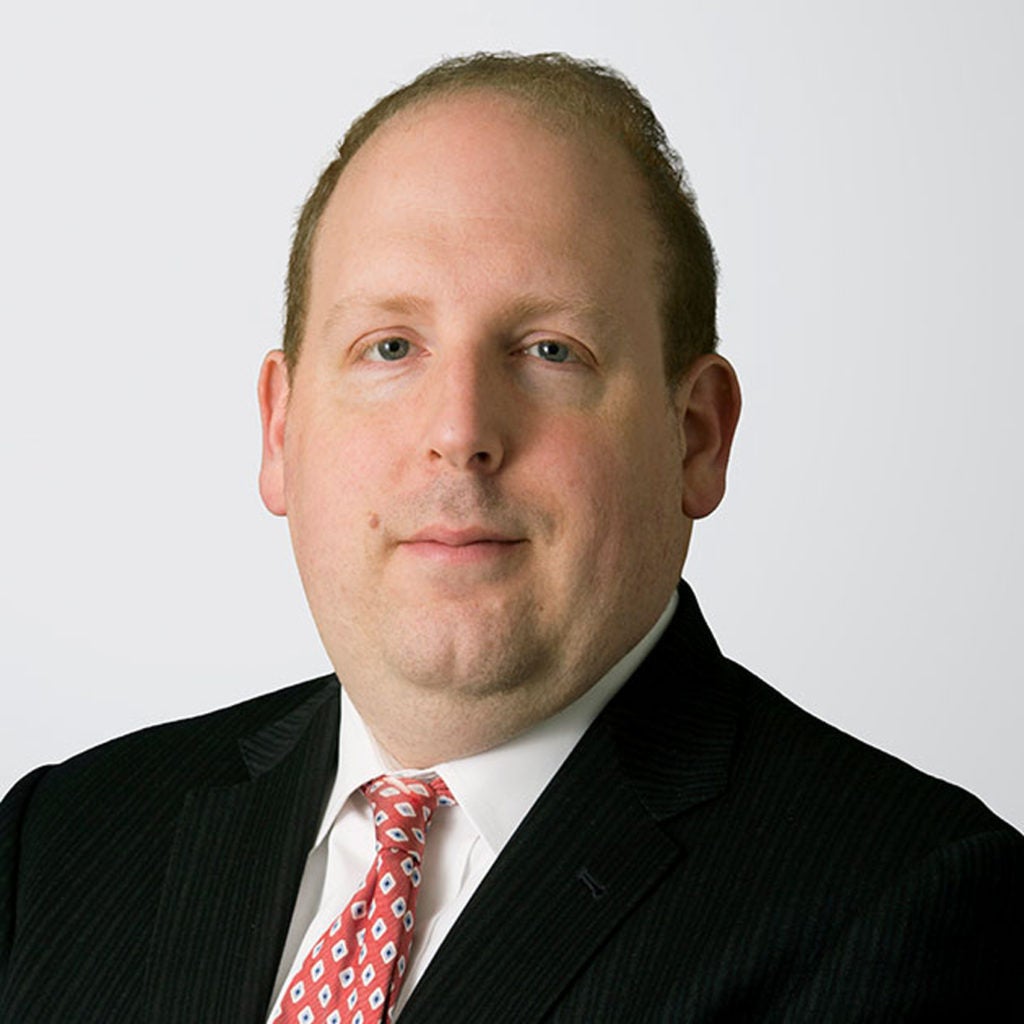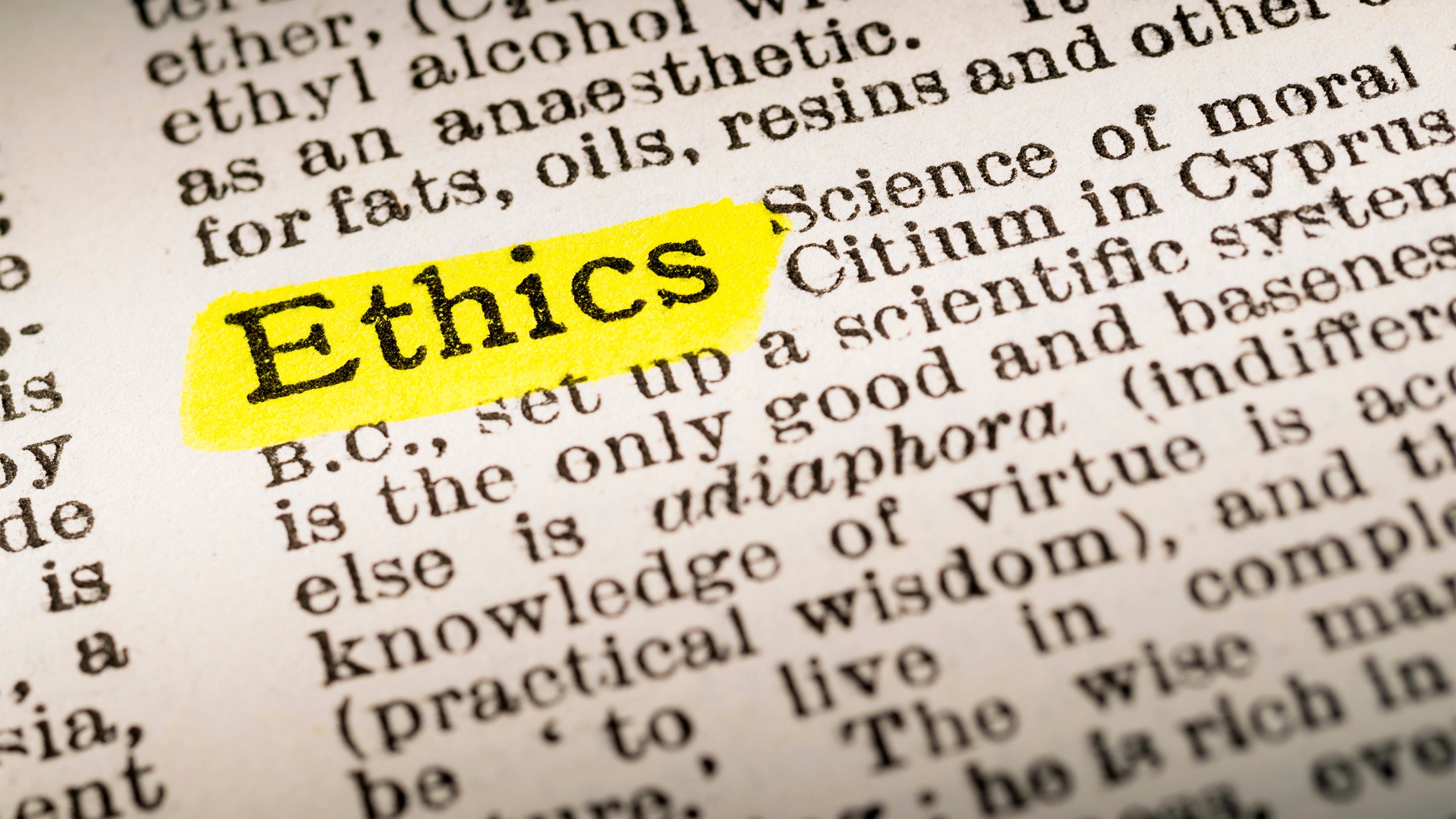When Joe Biden began presidential duties last week, he issued an ethics pledge for his administration. And the students in the Harvard Law School January Term course Legal Profession: Government Ethics—Scandal and Reform were paying especially close attention.
Robert Rizzi ’78 first taught the class 15 years ago at Georgetown University; he and Charles Borden ’01 have taught it at Harvard for the past decade. And both agree that their class has seldom been more relevant.

“Recent events may have been bad for the country, but they’ve been great for our course,” Rizzi said in a Zoom interview this week. “The class has changed to adjust to issues that seem to be important, but there are some core issues that haven’t changed much over ten years. We try to teach this as a regulatory course — a course on the regulation of public officials. There’s a dynamic to the entire issue of government ethics: It’s a trail of scandals, followed by reforms to address the scandals.”
“One of the things we like about this course is that it’s engaged in the present,” Borden said in a separate discussion. “It should be a descriptive course; we want people to learn the role of the lawyer and think about their responsibilities. But we also engage with the questions of: What should the objectives of government ethics be? How should we achieve them, and what’s really important?
“The Biden ethics pledge gives us an opportunity to think about these things in real time,” he added. “The new administration is stamping its own views on what additional ethics regulations should be in place. We want the students to think about what this should look like, which things should be added.”
Among the students who took course this semester are a few military veterans who served in Iraq, and a half-dozen international students. While many of the students plan to go into law, some plan to serve in government. Among the latter are Rosa Baum ’21, a J.D./M.P.P. dual degree candidate.

“The class has not disappointed in its usefulness and its ability to reflect what is happening in real time,” Baum said. “I think it’s also helping students think about what might lead them into government service, and how to really get there. This [past] administration has unfortunately given us a lot to think about and study. It’s not only about how they have served the public — and I put the word ‘served’ in air quotes, because I don’t think they have.”
She also says she’s appreciated the chance to view ethics in a larger context. One pattern the course has emphasized is how administrations get boxed in with their ethics pledge, she said. “For instance, the Obama administration set down an agreement that lobbyists would not play a role in the government and had to go back on that when Cecilia Muñoz [the former lobbyist appointed director of intergovernmental affairs] had to get a waiver. That ties in with the demonization of lobbyists, and the question of how we want to inject ethics into the system.”
Rizzi and Borden usually begin by covering a classic scandal: Richard Nixon’s “Checkers” speech, delivered in 1962 when he was accused of taking illegal campaign donations (He admitted only to keeping one gift, a puppy named Checkers). Says Rizzi, “That speech is a masterpiece in so many ways. And we try to explain that to some extent, almost all of the rules that we know today grew out of Watergate. The fact that this one massive volcano of corruption led to all these different streams is really pretty impressive.”
Current issues often influence where the course goes from there. In the past two weeks alone, they touched on the resignation of Department of Homeland Securities secretary Chad Wolf, whose appointment was found to be a violation of the Federal Vacancies Reform Act of 1998. Earlier the class looked at the Emoluments Clause, which forbids a president from profiting from any foreign or domestic government. This was seldom a pressing issue before former President Donald Trump refused to divest himself of his hotel and resort businesses while in office.
“We’re talking here about one of the oldest regulations in the books — something that was basically implemented in response to an 18th century scandal involving diplomats in the court of Louis XVI receiving snuff boxes,” Borden noted. “You had this concern about the subversion of government officials through gifts from foreign powers. So, it became an afterthought while we were teaching the course, more of a passing reference.

“But in the past four years it’s become a live issue,” he said, “because you’ve had President Trump and his range of businesses which do get frequented by foreign governments and state-owned enterprises. So, the clause has become a much bigger part of the course. Part of what we always do is to respond to the changing landscape as certain issues come more to the fore.”
While the course has gone virtual over the past year, it’s been able to present a wider range of guest speakers, and to respond to pressing issues in real time. One dramatic example occurred earlier this month, when Mark Patterson, the general counsel for Senate Majority Leader Chuck Schumer ’74, was set to address the class. Just a few days earlier, he had been present for the siege on the Capitol.
“To give you some idea of how that worked, he was ten minutes late to our class because he was delayed in getting back to his house for the Zoom call,” said Rizzi. “That’s because the area around the Capitol was like an armed camp, with fences and checkpoints all over the place. He also had to take a COVID test that day because of the attack. In that way, it’s incredible that he still showed up for the class.”
Dramatic as his recent experience had been, Patterson’s appearance in class was instead tied in to the ethical framework and the larger questions it raised, said Borden. “We’ve talked a lot about the relationship between ethics as a moral context, and ethics as a regulatory regime. That’s something we think of as ‘math vs. church’—Whether a failure of ethics will indicate a moral failing, or a violation of a legal regime. That gets into the big-picture questions of how you conduct yourself in terms of government services, being an attorney in an ethical way. These things are all part of learning the broader context in which you’re operating.”
